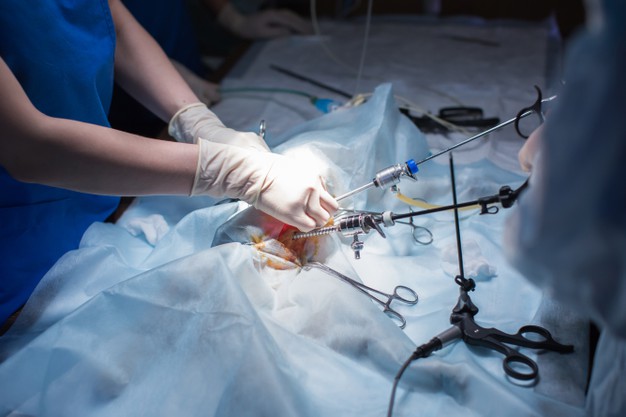Minimally invasive surgery (MIS) has emerged as a transformative approach in surgical care, revolutionizing the field by offering patients less invasive alternatives to traditional open procedures. At Healthpoint, our commitment to excellence in minimally invasive surgery extends across a broad spectrum of specialties, each characterized by advanced techniques, state-of-the-art technology, and a patient-centered approach. In this comprehensive exploration, we delve into the various facets of Healthpoint’s expertise in minimally invasive surgery, its applications, benefits, and impact on patient care.
Evolution of Minimally Invasive Surgery
The evolution of minimally invasive surgery has been marked by significant advancements in technology, techniques, and surgical instrumentation. What once began as a revolutionary concept has now become standard practice in many surgical specialties, offering patients numerous benefits, including reduced postoperative pain, shorter hospital stays, faster recovery times, and improved cosmetic outcomes. Minimally invasive techniques, such as laparoscopy, robotic-assisted surgery, endoscopy, and interventional radiology, have transformed the way surgical procedures are performed, enabling surgeons to achieve optimal outcomes with minimal trauma to surrounding tissues.
Healthpoint’s Commitment to Excellence
At Healthpoint, our commitment to excellence in minimally invasive surgery is unwavering, driven by a dedication to innovation, precision, and patient-centered care. Our approach to minimally invasive surgery is characterized by:
Advanced Technology: Healthpoint is equipped with state-of-the-art surgical facilities and cutting-edge technology, including high-definition cameras, robotic-assisted systems, and minimally invasive instrumentation. These advanced tools enable our surgeons to perform complex procedures with enhanced precision, visualization, and control, ensuring optimal surgical outcomes for our patients.
Specialized Expertise: Our surgical team comprises highly skilled and experienced surgeons who specialize in various minimally invasive techniques across multiple specialties. From laparoscopic abdominal surgery and robotic-assisted urological procedures to endoscopic interventions and interventional radiology techniques, our surgeons possess the expertise and proficiency to deliver safe, effective, and minimally invasive surgical care.
Comprehensive Approach: Healthpoint takes a comprehensive approach to minimally invasive surgery, focusing on patient-centered care, multidisciplinary collaboration, and personalized treatment plans. Our surgeons work closely with other healthcare professionals, including anesthesiologists, nurses, and allied health professionals, to ensure seamless coordination and continuity of care throughout the surgical process.
Patient Safety and Comfort: The safety and comfort of our patients are paramount at Healthpoint. We adhere to strict safety protocols and guidelines to minimize the risk of surgical complications and ensure optimal outcomes. Our dedicated surgical team prioritizes patient comfort and satisfaction, providing compassionate care and support from preoperative preparation to postoperative recovery.
Applications of Minimally Invasive Surgery at Healthpoint
Healthpoint offers a wide range of minimally invasive surgical procedures across various specialties, including:
Laparoscopic Surgery: Laparoscopic procedures, such as laparoscopic cholecystectomy, appendectomy, and hysterectomy, are commonly performed at Healthpoint for conditions affecting the abdomen and pelvis. These minimally invasive techniques offer patients less pain, faster recovery, and minimal scarring compared to traditional open surgery, resulting in improved patient outcomes and satisfaction.
Robotic-Assisted Surgery: Healthpoint utilizes robotic-assisted surgical systems, such as the da Vinci Surgical System, for complex procedures in urology, gynecology, and general surgery. Robotic-assisted techniques enhance surgical precision, dexterity, and visualization, allowing surgeons to perform intricate procedures with greater accuracy and control. Patients benefit from smaller incisions, reduced blood loss, and faster recovery times compared to traditional open surgery.
Endoscopic Surgery: Endoscopic procedures, including gastrointestinal endoscopy, bronchoscopy, and arthroscopy, are performed at Healthpoint to diagnose and treat conditions affecting the digestive tract, respiratory system, and joints. These minimally invasive techniques involve inserting a thin, flexible instrument (endoscope) through natural orifice or small incisions to visualize and access internal structures, resulting in shorter hospital stays, less postoperative pain, and faster recovery times for patients.
Interventional Radiology: Healthpoint offers minimally invasive interventional radiology procedures, such as angiography, angioplasty, and embolization, for the diagnosis and treatment of vascular and non-vascular conditions. These image-guided techniques use catheters and small instruments to deliver targeted therapies and interventions with minimal trauma to surrounding tissues, resulting in improved patient outcomes and quality of life.
Benefits of Minimally Invasive Surgery
Minimally invasive surgery offers numerous benefits for patients, including:
Reduced Pain and Discomfort: Minimally invasive techniques involve smaller incisions and less tissue trauma, resulting in reduced postoperative pain and discomfort compared to traditional open surgery. Patients experience less pain during recovery and require fewer pain medications, leading to a faster return to normal activities.
Faster Recovery Times: Minimally invasive surgery typically results in shorter hospital stays and faster recovery times compared to open surgery. Patients can resume their daily activities sooner and return to work or school within a shorter time frame, minimizing disruption to their lives.
Reduced Risk of Complications: Minimally invasive techniques are associated with lower rates of surgical complications, such as wound infections, bleeding, and tissue damage, compared to open surgery. The smaller incisions and precise surgical approach minimize the risk of complications and promote faster healing.
Improved Cosmetic Outcomes: Minimally invasive surgery often results in better cosmetic outcomes due to smaller incisions and reduced scarring. Patients experience less visible scars and improved aesthetic results, enhancing their overall satisfaction with the surgical outcome.
Enhanced Surgical Precision: Minimally invasive techniques allow surgeons to visualize the surgical field in high definition and perform precise maneuvers with greater accuracy and control. This precision enables surgeons to achieve optimal surgical outcomes while preserving surrounding healthy tissues and organs.
Healthpoint’s expertise in minimally invasive surgery represents a cornerstone of our commitment to providing patients with safe, effective, and patient-centered surgical care. Through advanced technology, specialized expertise, and a comprehensive approach, we strive to deliver optimal surgical outcomes while minimizing patient discomfort, risk, and recovery times. Whether it’s laparoscopic, robotic-assisted, endoscopic, or interventional radiology procedures, Healthpoint remains at the forefront of surgical innovation, pushing the boundaries of minimally invasive surgery to advance patient care and improve lives.

